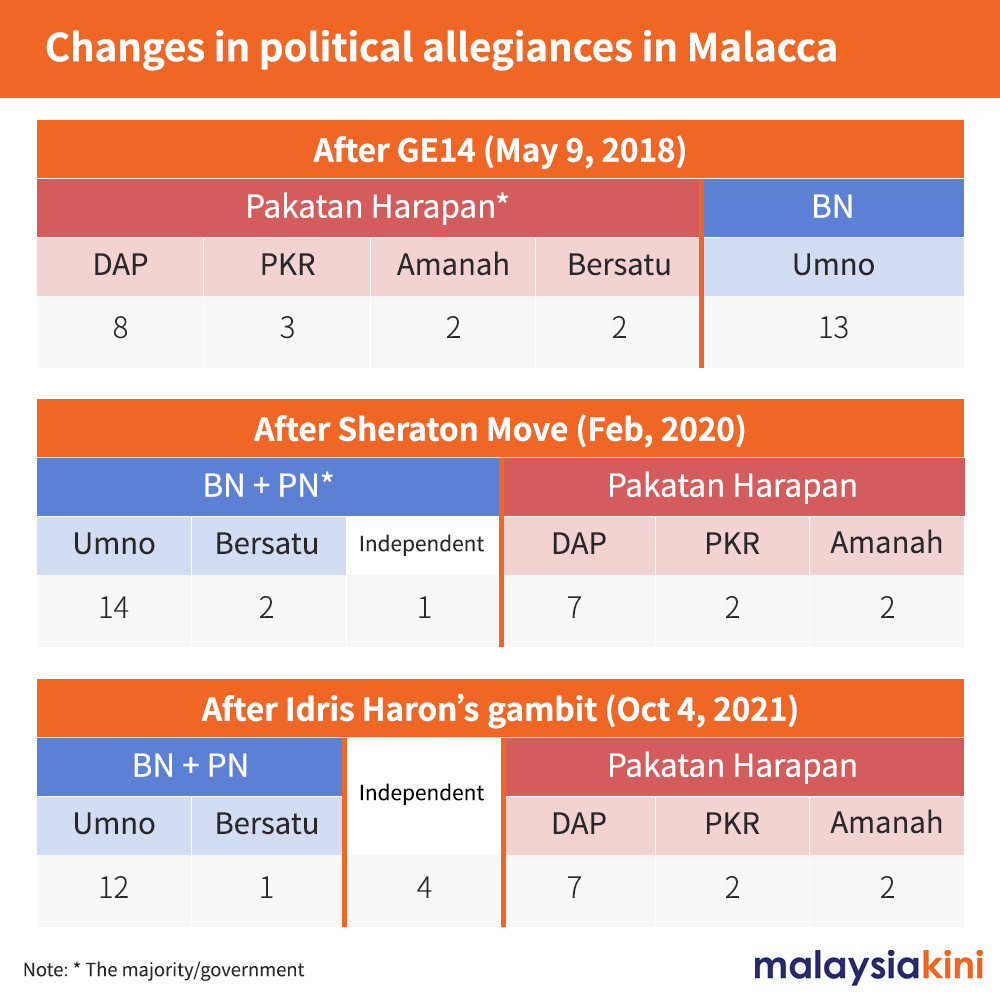Pakatan Harapan today refused to recognise Sulaiman Ali as the "caretaker" chief minister for Malacca.
In a statement after the Harapan presidential council meeting, coalition leaders said Sulaiman cannot be "caretaker" chief minister after losing majority support of the state's lawmakers.
"Sulaiman lost the support needed to be chief minister before the state legislative assembly was dissolved and hence can no longer lead the state government," said Harapan.
However, now that the state assembly has been dissolved, Harapan was of the opinion that a state election cannot be held because of the Covid-19 pandemic and declaring emergency was not appropriate either.
"Therefore, discussions must be held by all parties to ensure the Malacca constitution is upheld and respected by ensuring that any 'caretaker' government is represented by the majority of lawmakers," said Harapan.
Three blocs
To Harapan, there are currently three blocs in Malacca - the "majority" Harapan bloc led by Adly Zahari, a "minority" bloc led by Sulaiman (above) and another bloc led by Idris Haron.
By virtue of Malacca government gazette PU 27, governor Mohd Ali Rustam had dissolved the state assembly effective Oct 4.
This means that every seat in the state assembly is vacant until a new election is held.
The situation is different in Sarawak where an emergency was declared before the automatic dissolution of the state assembly, allowing the state lawmakers and executive to continue functioning.
In a statement yesterday, Malacca state secretary Kamel Mohamad claimed that Sulaiman will serve as caretaker chief minister until a new government is formed.
Cannot formulate binding policies
However, the caretaker chief minister will not be able to formulate any binding decisions and policies.
The caretaker chief minister is also unable to make decisions with financial implications.
"To that end, the caretaker government can take actions such as carrying out routine official duties, including exercising the powers given under the law to ensure the functioning of the state government machinery; holding official meetings on the state government’s administrative matters.
"... Continuing the implementation of existing policies and programmes for which financial allocations have already been made; making any agreements, contracts and undertakings based on policies which have been approved by the state government or provisions approved by the state assembly, such as the current year's budget," said Kamel.
- Mkini





No comments:
Post a Comment
Note: Only a member of this blog may post a comment.